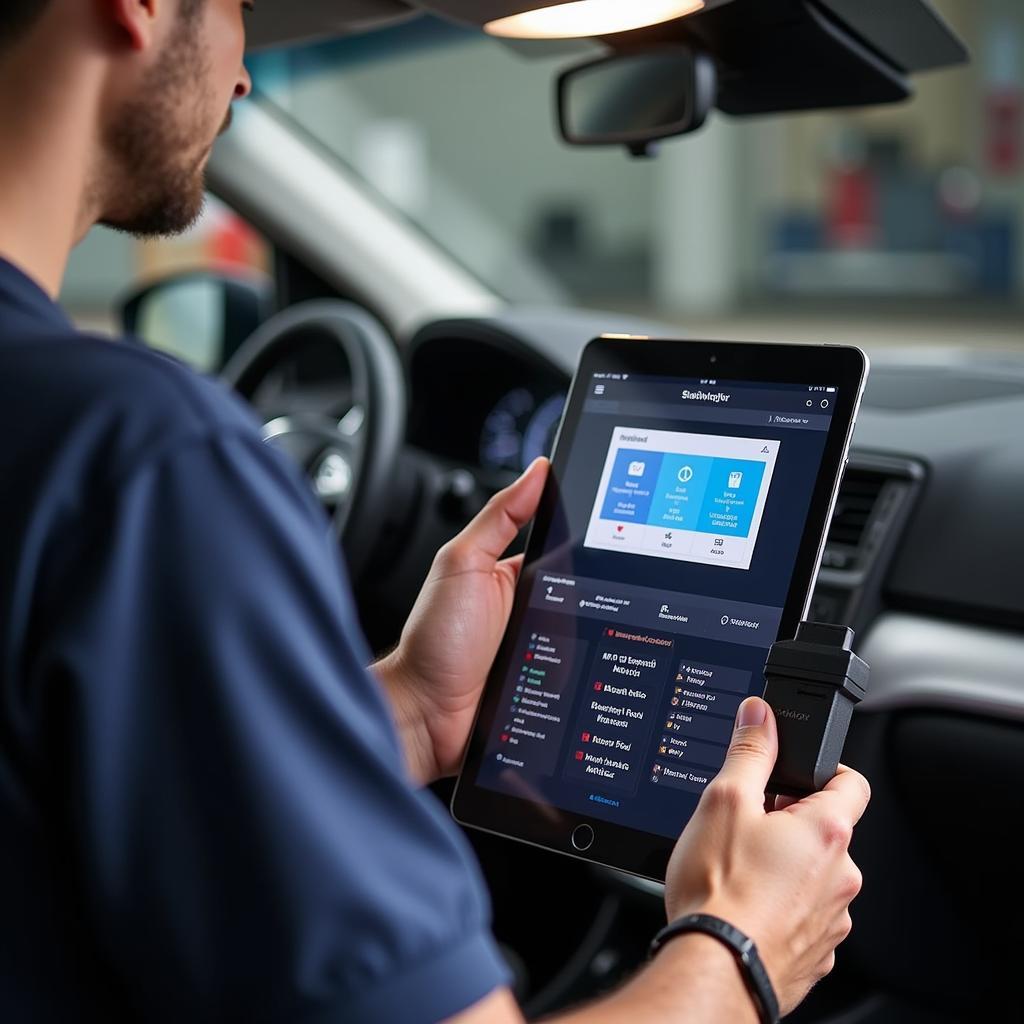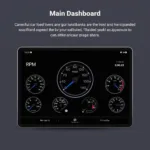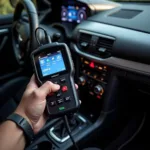Navigating the realm of OBD2 scanners can feel like entering a maze, especially when faced with different OBD2 cables. These cables, often overlooked, are the crucial link between your vehicle’s computer and the diagnostic tool. Choosing the wrong cable can lead to compatibility issues, inaccurate readings, and frustration.
Understanding OBD2 Cables: More Than Just Wires
An OBD2 cable isn’t just a random wire; it’s a sophisticated piece of technology designed to transmit data quickly and accurately. It acts as a bridge, allowing your OBD2 scanner to communicate with your car’s Engine Control Unit (ECU). The ECU is essentially your car’s brain, storing vital information about engine performance, emissions, and other crucial systems.
Why Different OBD2 Cables Exist: A Matter of Compatibility
You might wonder why there isn’t a one-size-fits-all OBD2 cable. The answer lies in the evolution of technology and the need for diverse connectivity options.
- Early Scanners: Initially, OBD2 scanners were bulky and connected directly to the vehicle’s computer via serial or parallel ports.
- USB Era: As technology progressed, USB cables became the standard, offering faster data transfer and greater convenience.
- Wireless Revolution: The introduction of Bluetooth and WiFi OBD2 adapters revolutionized diagnostics, enabling wireless communication with smartphones, tablets, and laptops.
Exploring Common OBD2 Cable Types: Finding the Right Fit
Choosing the correct OBD2 cable depends on your scanner and your diagnostic needs. Let’s delve into the most prevalent types:
1. USB OBD2 Cables: The Reliable Workhorse
USB cables remain a popular choice for their reliability and wide compatibility with various devices. They provide a stable connection and are ideal for:
- Professional Mechanics: Garages and dealerships often rely on USB cables for their robustness and resistance to interference.
- In-depth Diagnostics: USB’s high data transfer speeds are suitable for complex tasks like ECU flashing and programming.
2. Bluetooth OBD2 Adapters: Embracing Wireless Freedom
Bluetooth OBD2 adapters offer the convenience of wireless connectivity, allowing you to use your smartphone or tablet as a diagnostic tool. They are perfect for:
- DIY Enthusiasts: Easily monitor real-time engine data, clear check engine lights, and perform basic diagnostics from your mobile device.
- On-the-Go Use: Their compact size and wireless nature make them ideal for quick checks or troubleshooting while traveling.
“Bluetooth OBD2 adapters have been a game-changer for DIYers,” says John Smith, a veteran mechanic with over 20 years of experience. “They empower car owners to understand their vehicles better and address minor issues without needing specialized equipment.”
3. WiFi OBD2 Adapters: Extending Your Wireless Range
WiFi adapters offer similar functionality to Bluetooth but provide a more extended range and potentially faster data transfer speeds. They are well-suited for:
- Fleet Management: Monitor multiple vehicles simultaneously from a central location, ideal for businesses with large fleets.
- Advanced Diagnostics: The increased bandwidth of WiFi can handle data-intensive tasks like live data streaming and mapping.
 Wireless Diagnostics with WiFi OBD2 Adapter
Wireless Diagnostics with WiFi OBD2 Adapter
Factors to Consider When Choosing an OBD2 Cable
Selecting the right OBD2 cable involves considering several factors beyond just the connection type:
- Cable Length: Ensure the cable is long enough to comfortably reach from your vehicle’s OBD2 port to your diagnostic device.
- Build Quality: Opt for a durable cable with sturdy connectors to ensure a reliable connection and prevent damage over time.
- Software Compatibility: Verify that the cable is compatible with your chosen diagnostic software or app.
Conclusion: The Right Cable, The Right Diagnosis
Understanding the nuances of different OBD2 cables empowers you to make informed decisions about your vehicle’s diagnostics. Whether you’re a professional mechanic or a DIY enthusiast, choosing the appropriate cable ensures accurate readings and a seamless diagnostic experience. Remember, the right cable is the key to unlocking the secrets hidden within your car’s computer.
FAQs
1. Are all OBD2 cables universal?
While all OBD2 cables use the same standard connector, compatibility depends on the specific protocol your vehicle uses and the capabilities of your scanner.
2. Can I use any USB cable for OBD2 diagnostics?
No, you need a dedicated OBD2 cable that includes the necessary circuitry for communication between the scanner and the vehicle.
3. What is the range of a Bluetooth OBD2 adapter?
The range varies depending on the adapter but is typically around 30 feet.
4. Do I need an internet connection for WiFi OBD2 adapters?
Some adapters require an internet connection, while others create their own local network for connection.
5. Where is the OBD2 port located in my car?
The OBD2 port is usually located under the dashboard on the driver’s side, but its exact location can vary by vehicle make and model.
If you need further assistance in choosing the right OBD2 cable or have any other questions, our team is here to help 24/7. Contact us via WhatsApp at +1(641)206-8880 or email us at [email protected]. We’re dedicated to providing you with the best possible support for all your car diagnostic needs.

